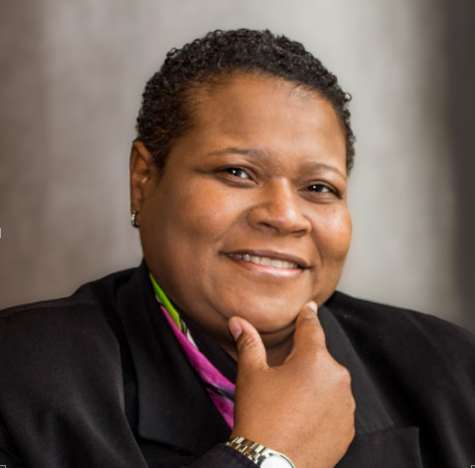
Supporting Black Students and Black Leaders in Higher Ed
Blog Post
For Black History Month 2022, we reached out to Aspen Presidential Fellows past and present to hear their thoughts on why it’s essential to support Black students and Black leaders in higher education. We received numerous thoughtful responses (check them out on Twitter and LinkedIn), but we were particularly moved by the response we received from Dr. Felicia L. Ganther. Dr. Ganther is the sitting President of Bucks County Community College and a member of the Rising Presidents Fellowship, Cohort 2.
How might the field improve support for Black/African American students?
First, talk with your students. Stop using anecdotal suggestions and then have professionals around the table decide how to best serve and support African American students. Survey students, get them in focus groups, go to their club/association meetings…. ask them what they need, want, desire, etc.
Second, create programs and services based upon their needs. For example, I surveyed African American students and found that Wednesday and Sunday evenings were the best days for them [to access programming]. So, we hosted virtual programs during those time periods in order to accommodate their schedule needs.
Third, provide some type of benefit that would help them to stay focused or to persist. This benefit is not always a scholarship…it could be a public subway pass, a meal pass to eat on campus when attending class, a weekend grocery bag to help cover meals, trips to see things outside their state, professional clothing, etc.
Finally, ONLY [hire] staff who genuinely care about these students and can create a sense of belonging and a place of trust. Stop putting the only African American employee [at the institution] in charge of the program, they may be burned out or tapped out…instead find employees who are genuinely invested in African American student success.
Are you the first Black/African American president at your institution?
Yes, I am the first African American president of my institution. I think this appointment is extremely significant given that the county is more than 90% white, and African Americans and other communities of color represent less than 10% [of the county] collectively.
What does being the first Black/African American president at your institution mean to you?
First, I believe it is the maturation of our nation that has created the platform where professionals, such as myself, are judged by the content of our character and ability to do the job without hesitation due to the color of our skin.
Second, I believe that the [efforts to close equity gaps over the past 10 years have made clear why we need] diversity and inclusion in all aspects of higher education—not just within the curriculum and the student body, but also in who teaches and leads at these institutions.
Finally, I believe that there are endless opportunities for me to build, nurture, and enhance relationships and/or partnerships within the community that may have never existed or would seem impossible [at face value]….[Despite] the appearance that we are different, in fact, our desires are the same.
Aspen has prepared me to lead during a time such as this. From the curriculum and presenters who provided forward-thinking discussions and learning opportunities to the high level of expertise from seasoned college presidents to the immersive experiences that allow you to dissect, debate, and deliberate complex issues….all of it provided various prisms by which I can lead and make decisions that can move my institution forward.
Aspen wasn’t a professional development initiative that was trying to get me to assimilate into what a college president should “look, act, be” like, but it allowed me to identify how I would remain authentic and true to myself while ensuring that I had honed the necessary skills to be a college president in my own right. As an African American woman, I treasure my authenticity and my cultural roots that have shaped who I am. The ability to cultivate my desire to serve as a president through my own lens was beneficial to my success as an applicant as well as a current sitting president.
